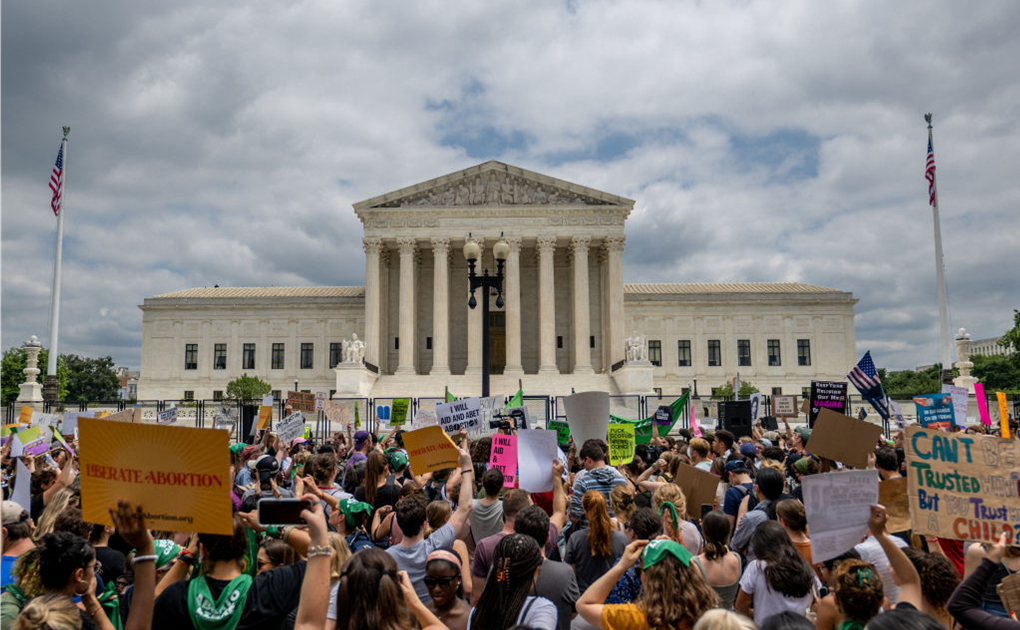New York State Rifle & Pistol Association v. Bruen
On June 23, in a 6-3 decision in New York State Rifle & Pistol Association v. Bruen, the Supreme Court struck down a 109-year-old New York state law that requires gun owners who want to carry a handgun outside their homes, whether openly or concealed, to demonstrate “proper cause” and prove a that they have a unique need for self-protection before they can obtain a license to do so.
The ruling came less than six weeks after a gunman killed 21 people — 19 children and two teachers — at an elementary school in Uvalde, Texas.
This is a major setback for anti-gun violence advocates, as it vastly expands the scope of the Second Amendment. The immediate impact of Bruen is that handguns — which are responsible for the overwhelming majority of gun murders in the United States — are likely to proliferate on many American streets. That’s because Bruen strikes the types of laws that limit who can legally carry handguns in public.
The ruling has already had rippling effects in other states, with restrictions easing and the demand for easily concealed firearms increasing. It has also opened up new avenues for those fighting against California’s highly restrictive gun laws.
“That was clearly one of the goals of the justices in the majority: to shake up 2nd Amendment law and lead to the reconsideration of laws that had previously been upheld,” said Adam Winkler, a UCLA law professor who focuses on 2nd Amendment law, in an interview for the LA Times.
Dobbs v. Jackson Women’s Health Organization
On Friday, June 24, the United States Supreme Court ended constitutional protections for the right to abortion. The 5-4 decision in Dobbs v. Jackson Women’s Health Organization upheld a Mississippi law that banned abortions after 15 weeks of pregnancy, with no exception for rape or incest and overturned the longstanding precedents of Roe v. Wade (1973) and Planned Parenthood v. Casey (1992).
The decision was met with public outrage as protests broke out across the nation in objection to the ruling. Many have called the ruling a direct attack on women’s rights and claimed that ruling poses an extreme danger to women’s health as the U.S. maintains the highest maternal mortality rate in the developed world.
“In the absence of Roe, 26 states are certain or likely to move quickly to ban abortion. Of these, 13 states have “trigger laws” that ban abortion from the moment of fertilization: Arkansas, Idaho, Kentucky, Louisiana, Mississippi, Missouri, North Dakota, Oklahoma, South Dakota, Tennessee, Texas, Utah and Wyoming. Another five of these states ban abortion between six and 15 weeks of pregnancy. At six weeks, an embryo is the size of a grain of rice and most women don’t even know they’re pregnant,” wrote Carrie N. Baker for Ms. Magazine.
There are fears that Dobbs may put the legal right to contraception under threat as well as other personal freedoms such as same-sex marriage and interracial marriage.
Geoffrey R. Stone, a constitutional law professor at the University of Chicago speaking with Bloomberg Law, agreed that challenges to other rights could happen soon, but it is uncertain whether the Supreme Court will overturn them in the same manner as Roe.
“I think they’re less likely to overturn those decisions because they don’t feel the same degree of popular opposition to those decisions as existed with at least 30 to 40 percent of the American people with respect to abortion,” Stone said. “But who knows?”
West Virginia v. EPA
By a 6-3 vote, the Supreme Court ruled on June 30 that the Clean Air Act does not give the Environmental Protection Agency broad authority to regulate greenhouse gas emissions from power plants that contribute to global climate change.
The decision, made by the conservative-majority court, is a devastating step in the wrong direction in the fight against human-induced global warming. The ruling states that the Environmental Protection Agency cannot require states to decarbonize their electricity sectors, “a decision that is expected to dramatically slow the United States’ ability to reduce greenhouse gases and mitigate the effects of climate change,” says Erin Douglas of the Texas Tribune.
The decision’s use of the controversial “major questions” legal doctrine — invented by the Supreme Court, which places strict limits on a federal agency’s ability to “exercise powers of vast economic and political significance” — could have a chilling effect on future regulations.
The major questions doctrine “largely just functions as a veto power, allowing judges to justify blocking nearly any regulation they do not like,” said Harvard law professor Richard Lazarus, an expert on environmental law.
“That’s a very big deal because they’re not going to get it from Congress because Congress is essentially dysfunctional,” Lazarus said. “This could not have come at a worse time” because “the consequences of climate change are increasingly dire and we’re running out of time to address it.”
Image via Brandon Bell/Getty Images

